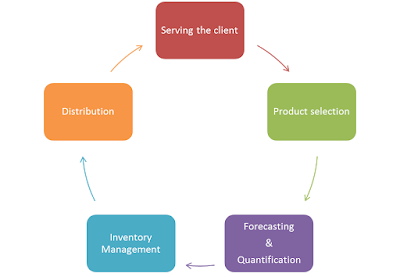Another Approach to Training of Trainers (TOT)
Photocredit: Communityni.org
I'm currently working on a TOT curriculum for a project in Africa. I came up with certain topics for the curriculum which focused on adult learning, coaching, mentoring, contextualised/experiential learning and feedback. This was based on my experience in TOT sessions within the context.
As I worked on the outline for the training, I thought back at the TOT courses which focused on how to train, basically presentation skills and I realised that the real challenge which trainers face is the learning transfer i.e. application on the job. I believe that every trainer should understand that training is more than the classroom and real learning takes place beyond the classroom. What do we expect from the people we train: that they apply the knowledge and skills at their work so why do we focus less on learning transfer when conducting training of trainers at times.
Another major point is that unconsciously we focus only on facilitating training in a classroom setting when the participants spend a maximum of 10 days in the classroom and return to work. Why don't we train on driving learning at work too? Many times the on-the-job training (OJT) framework is less structured which makes it difficult to track its effectiveness.
Organisations are getting more concerned about level 4 evaluation of impact/result. Where does impact and results occur? Is it not in the work place? If future trainers are not conscious about learning transfer, it becomes hard to identify the return on investment (ROI) through impact and results. Learning professionals constantly struggle with determining ROI but maybe because we concentrate a lot on how to train in the classroom more than how to ensure learning transfer and train on-the-job. The job environment is the real learning space and majority of time is spent there. We should not only train on presentation skills but how to drive learning in the workplace. Every trainer should think of the work environment as the learning space.
I'm a strong advocate of identifying learning moments too. I have taken a look at my own learning experiences and concluded that learning is more impactful when we are able to identify teachable moments. Teachable moments are times when the learner's interest is at its highest usually as a result of conversation or immersion in a situation that brings about curiosity. This happens most often at work. Let's think: Will I learn better when a colleague takes me through a process and I observe him or her in actual practice compared with a 5-day training?
My conclusion is that we should train people on presentation skills, adult/experiential learning and in addition include a strong element of informal learning, learning transfer and OJT. It does make a lot of difference eventually.



Comments
Post a Comment